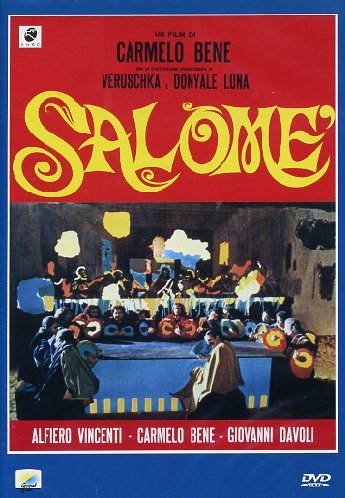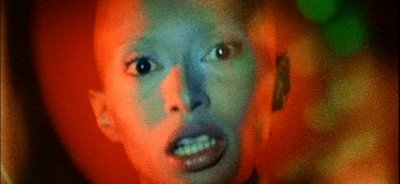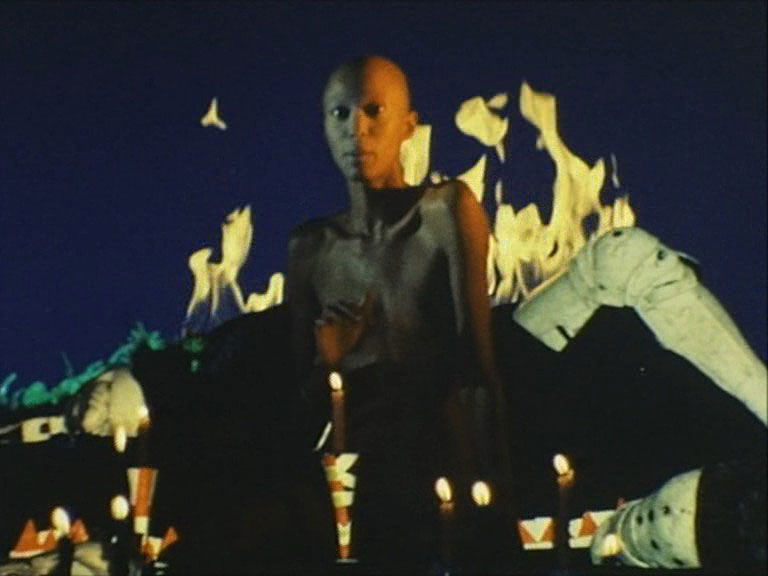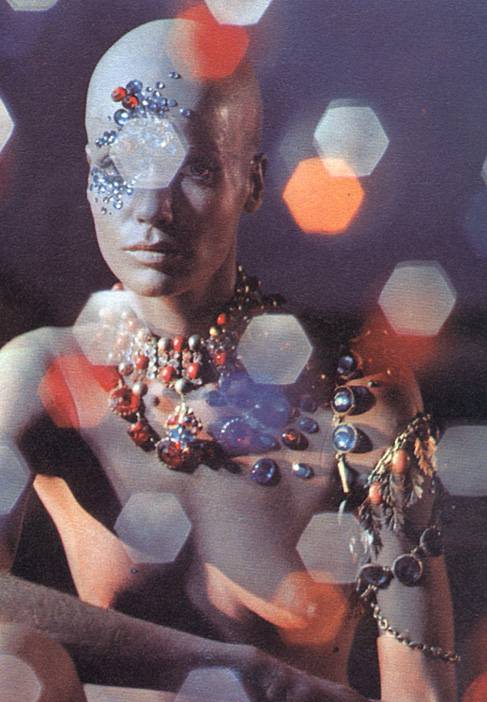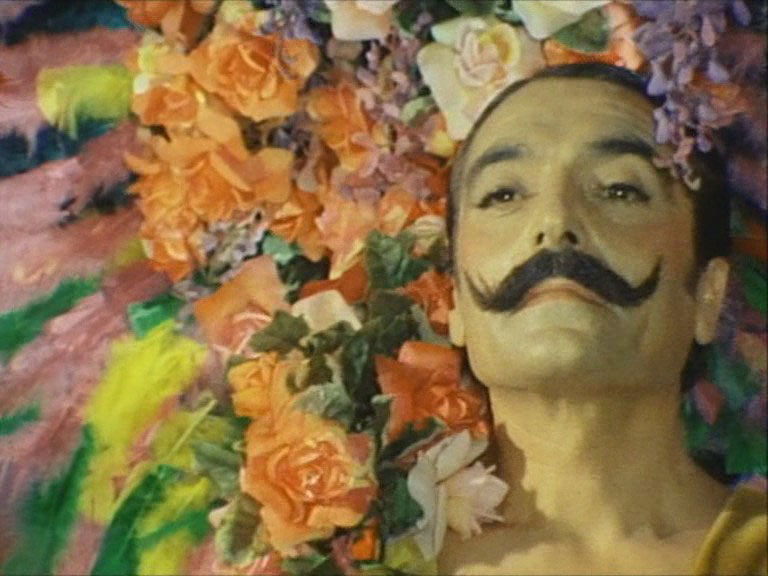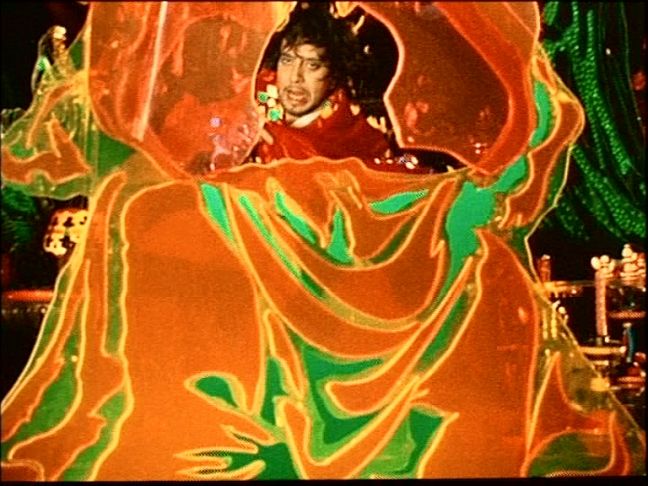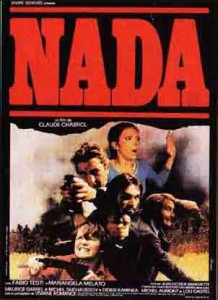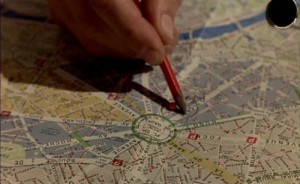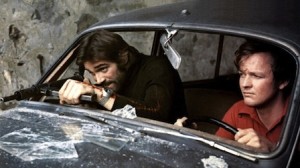From Oui (June 1974). –- J.R.
Salome. Meet Carmelo Bene, a vital figure in the Italian avant-garde
whose introduction to American moviegoers is long overdue. Salome,
freely adapted from the Oscar Wilde play, is the latest and perhaps the
most ravishing of his lavish camp spectacles. (Earlier efforts include
Our Lady of the Turcs, Don Giovanni, and One Hamlet Less.)
The title role is played by Veruschka –- the high-fashion model who
writhed under the photographer hero at the beginning of Blow-Up
–- appearing bald, nude, and zombielike as she steps out of the water,
decorated from head to foot with multicolored gems. Bene as Herod
upstages everyone with his hysterical nonstop monologues and
Woody Woodpecker laughs. Visually, it’s a riot of extravagant colors
(fluorescent costumes, Day-Glo sets) and opulent debaucheries
flashing by so quickly that everything remains in delirious flux, and
none of the fancy scenic splendors stands still long enough to be
contemplated. Try to imagine Orson Welles’ Macbeth colored in
with a Fellini paintbox, recut by Kenneth Anger, accompanied by
Schubert’s Unfinished Symphony and the Beer-Barrel Polka,
and you’ll get a fraction of a notion of Bene’s giddy madness.
Depravity, thy name is Salome.
–- JONATHAN ROSENBAUM
***
Nada. Claude Chabrol’s current film starts out a little
like The Asphalt Jungle or Rififi. Half a dozen misfits
from different walks of life –- including a young philosophy
teacher (Michel Duchaussoy); a Catalan revolutionary with
a Che Guevara beard (Fabio Testi); an ex-prostitute named
Cash (Mariangela Melato); and a veteran hired gun (Maurice
Garrel) -– join forces and pool their resources to plan a big
caper. But the motives this time are political rather than
mercenary; it’s an anarchist plot to kidnap the American
ambassador in Paris. Adapting a pop thriller by French novelist
Jean-Patrick Manchette, Chabrol turns away from the
examination of provincial and suburban bourgeois behavior
that has concerned him in recent years (in La Femme Infidèle,
Le Boucher, and Just Before Nightfall, among others) to
mount a polemic against gratuitous violence in all its varying
guises. The calculated corruption and sadism of the police are
shown to be equivalent to the recklessness and ruthlessness
of the anarchists, who identify themselves as Nada – the
Spanish word for “nothing”. (Even the American ambassador
comes across as something less than dignified when he is
kidnapped in a fancy bordello, about to sample the pleasures
of a poule dressed up as Salome.) As police and anarchists
pursue their intricate counterstrategies and battle things out
to the bitter end, Chabrol puts a wry pox on both their houses
in this grim adventure of contemporary French terrorism.
-– J.R.

